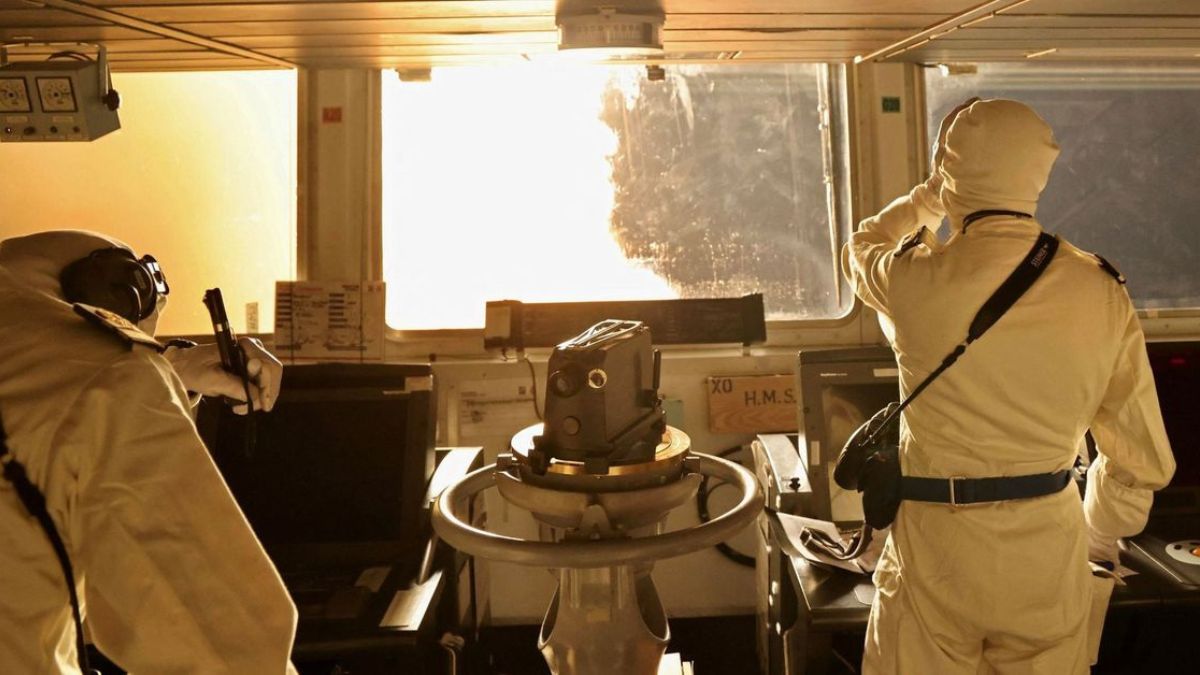- By Abhirupa Kundu
- Fri, 12 Jan 2024 03:33 PM (IST)
- Source:JND
Yemen's Iran-backed rebel group Houthis have been in the limelight since last month following the attacks on ships sailing through the Red Sea and Suez Canal, the shipping route which accounts for 12 per cent of world trade passes. The Houthis on Friday grabbed headlines when the US and the UK launched missile strikes on Houthi targets inside Yemen killing five and injuring six of their fighters. Reacting to the strikes, Houthi's military spokesperson vowed to retaliate and said that the "strikes by UK and US would not go without punishment" and the group will continue to target ships headed for Israel.
The Yemen rebel outfit's military spokesman said the strikes killed five fighters and wounded six others, and that the Houthis would continue to block the passage of ships in the Red Sea and the Arabian Sea.
In a statement, US President Joe Biden said, "These targeted strikes are a clear message that the United States and our partners will not tolerate attacks on our personnel or allow hostile actors to imperil freedom of navigation."
The UN Security Council demanded Yemen's Houthis immediately end attacks on ships in the Red Sea and cautioned against escalating tensions while implicitly endorsing a US-led task force that has been defending vessels https://t.co/meiZC2oNdE pic.twitter.com/K5AVGY4z13
— Reuters (@Reuters) January 11, 2024
Who Are Houthis?
Led by Abdul Malik al-Houthi, the group is Shia Islamist political and military organisation that emerged in Yemen in the 1990s. Drawing its name largely from the Houthi tribe, it is predominantly made up of Zaidi Shias.
The Houthis, an armed movement that took control of most of Yemen over the past decade, have been attacking shipping at the mouth of the Red Sea - one of the world's busiest trade lanes - since October, claiming that the attacks have been carried out in support of Hamas.
The organisation participated in the 2011 Yemen Revolution, where they protested on the streets, coordinating with Yemeni opposition groups. The Houthi movement portrays itself as a strife for economic development and to end the political marginalisation of Zaidi Shias.
ALSO READ: ‘Is It Your Son’s Body? What Bengaluru CEO Told Police; Taxi Driver Narrates Details Of Journey
Recent Controversies Involving The Houthis
The Houthi attacks have disrupted international commerce, forcing some ships to take the long route around southern Africa, an increase in delivery costs and time that stoked fears of a new bout of global inflation.
The price of oil rose sharply on concern that supplies could be disrupted. Brent crude rose USD 2. The US said Australia, Bahrain, Canada and the Netherlands supported the operation, part of an international effort to restore the free flow of trade.
The strikes, the first by the United States on Yemeni territory since 2016, were a clear demonstration of Washington's struggle to contain the fallout of the Israel-Hamas war since it broke out in October.
A Houthi official confirmed "raids" in the capital Sanaa along with the cities of Saada and Dhamar as well as in Hodeidah governorate, calling them "American-Zionist-British aggression."
'This is an unsustainable situation': US and British naval forces shoot down 21 drones and missiles fired by Yemen-based Houthis towards international shipping lanes in the southern Red Sea https://t.co/mH3xwmtuGQ pic.twitter.com/b0r9FY687p
— Reuters (@Reuters) January 10, 2024
The United States also accused Iran of being involved operationally in the Houthi attacks, providing the military capabilities and intelligence to carry them out. "We believe that they have been certainly involved in every phase of this," a senior US official told reporters.
Israel has mounted a military assault that has killed more than 23,000 Palestinians in Gaza after Hamas fighters attacked Tel Aviv on October 7, killing 1,200 people and seizing 240 hostages
ALSO READ: Indian Navy Warships Deployed In Arabian Sea, Gulf of Aden To Deter Pirates, Drone Attacks

